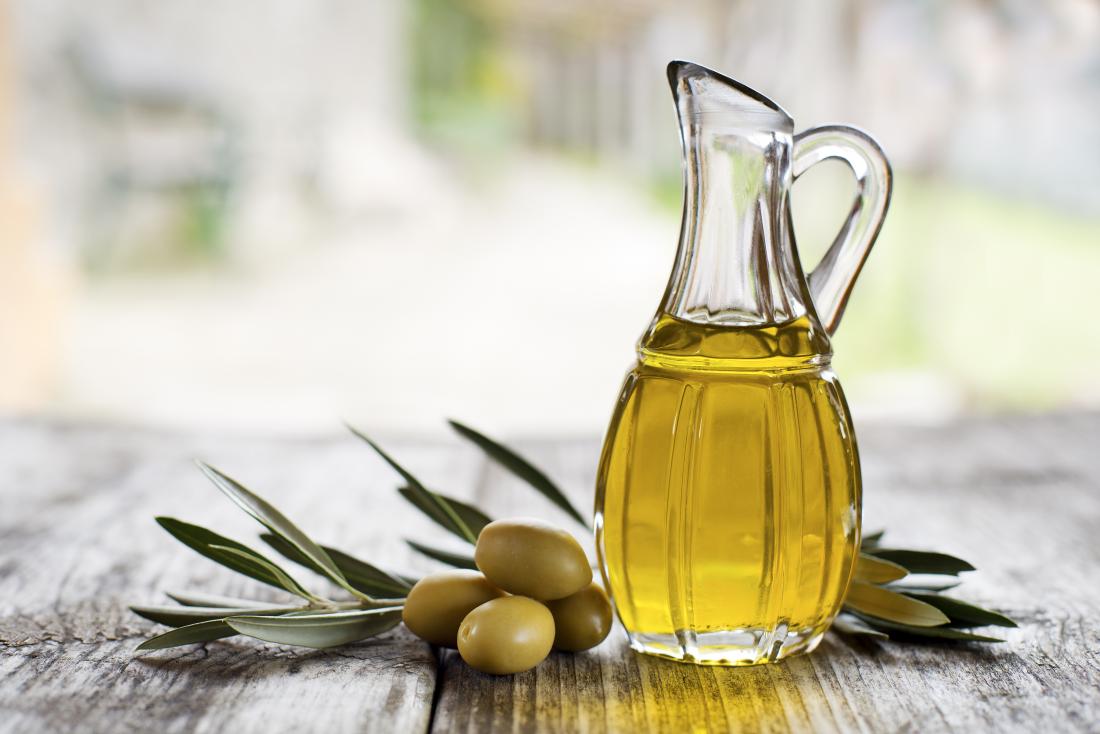


 4:1:4
4:1:4  2024-08-12
2024-08-12  1043
1043

Switching from an omnivorous diet to one with a variety of nuts, fruits, and vegetables in a light dressing is a fairly sure-fire way for people at risk of heart disease to lower their body's fat levels.
Yet for some individuals, adding a good drizzle of extra virgin olive oil might compromise an otherwise healthy lifestyle choice.
A team of researchers from the University of Florida and the National Institute of Diabetes and Digestive and Kidney Diseases took a closer look at the health benefits of plant-based diets for individuals at risk of developing atherosclerotic cardiovascular disease.
Recent promotion of vegan diets and eating like you're living in the Mediterranean has lauded the benefits of extra virgin olive oil (EVOO) as a means of reducing worrying cholesterol levels.
The Mediterranean diet includes animal-derived fats, and adding the frequently recommended amount of olive oil means fat consumption can reach up to nearly half of the body's energy intake.
Studies have shown conflicting results about the benefits of different parts of Mediterranean diets, and evidence on whether olive oil combined with low-fat, whole-food plant-based diets truly benefits people with heart disease risk factors is thin on the ground.
To investigate this, the researchers recruited 40 adults aged 18 to 79 who spent a total of eight weeks on a carefully put together vegan diet: four weeks on a diet that consisted of four additional teaspoons of EVOO per day, and four weeks on a low EVOO version of the diet with no extra olive oil, with a week's break in between.
Both the low and high EVOO diets led to improvements in cardiometabolic profiles (covering cholesterol, blood sugar, and inflammation) compared with measures taken before the diets. Curiously, the order in which the diets occurred made a difference in how cholesterol levels changed compared with their baseline at the very start of the study.
Starting the diet period with relatively liberal amounts of olive oil and then transitioning to meals with little to no olive oil saw the volunteer's low-density lipoprotein (LDL) or 'bad' cholesterol levels drop.
On the other hand, splashing EVOO on after weeks of little to no oil seemed to impede LDL reduction.
The team thinks the small amounts of saturated fat found in the extra virgin olive oil might affect the liver's processing of LDLs, causing them to rise in the blood where they can increase the body's risk of stroke and heart attack.
"Decreased intake of extra virgin olive oil may yield increased lipid lowering than relatively greater consumption," write the researchers in their published paper.
There are some caveats here: while the researchers accounted for sex and body weight differences in their calculations, all the participants were rated as at borderline to high risk for atherosclerotic cardiovascular disease (ASCVD), which can develop as a result of too much LDL cholesterol blocking the arteries.
What's more, the differences in relative LDL cholesterol reductions weren't all that big, especially when the low EVOO diet was followed second. With or without the olive oil, these plant-based diets were again shown to be good for the body.
"Although both diets improved the metabolic phenotype, a low EVOO intervention may provide superior LDL‐C lowering in individuals at highest risk," write the researchers.
In summary, cutting out extra helpings of olive oil may be something to think about for those at higher risk of heart disease, the researchers say. Future studies could look at how this association might play out among larger groups of participants, and across longer periods of time, but it's another reminder that we are what we eat.
"Addition of extra virgin olive oil after consuming low amounts within a whole food, plant‐based diet may impede risk reduction," write the researchers.
"Consideration of optimal sources of dietary fats as well as quantity of extra virgin olive oil within a risk‐lowering vegan dietary pattern may vary depending on dietary context and risk level."
Reality Of Islam |
|

Batteries p

Some 1.2 bi
 9:3:43
9:3:43
 2018-11-05
2018-11-05
10 benefits of Marriage in Islam
 7:5:22
7:5:22
 2019-04-08
2019-04-08
benefits of reciting surat yunus, hud &
 9:45:7
9:45:7
 2018-12-24
2018-12-24
advantages & disadvantages of divorce
 11:35:12
11:35:12
 2018-06-10
2018-06-10
 6:0:51
6:0:51
 2018-10-16
2018-10-16
 9:42:16
9:42:16
 2022-10-19
2022-10-19
 10:55:53
10:55:53
 2022-06-13
2022-06-13
 8:25:12
8:25:12
 2022-03-09
2022-03-09
a hero waters thirsty wild animals
 9:4:9
9:4:9
 2022-01-06
2022-01-06
bahlool & the throne of haroun rashid
 8:20:35
8:20:35
 2018-06-21
2018-06-21
 2:5:14
2:5:14
 2023-01-28
2023-01-28
 10:35:40
10:35:40
 2022-05-26
2022-05-26
 5:41:46
5:41:46
 2023-03-18
2023-03-18
| LATEST |